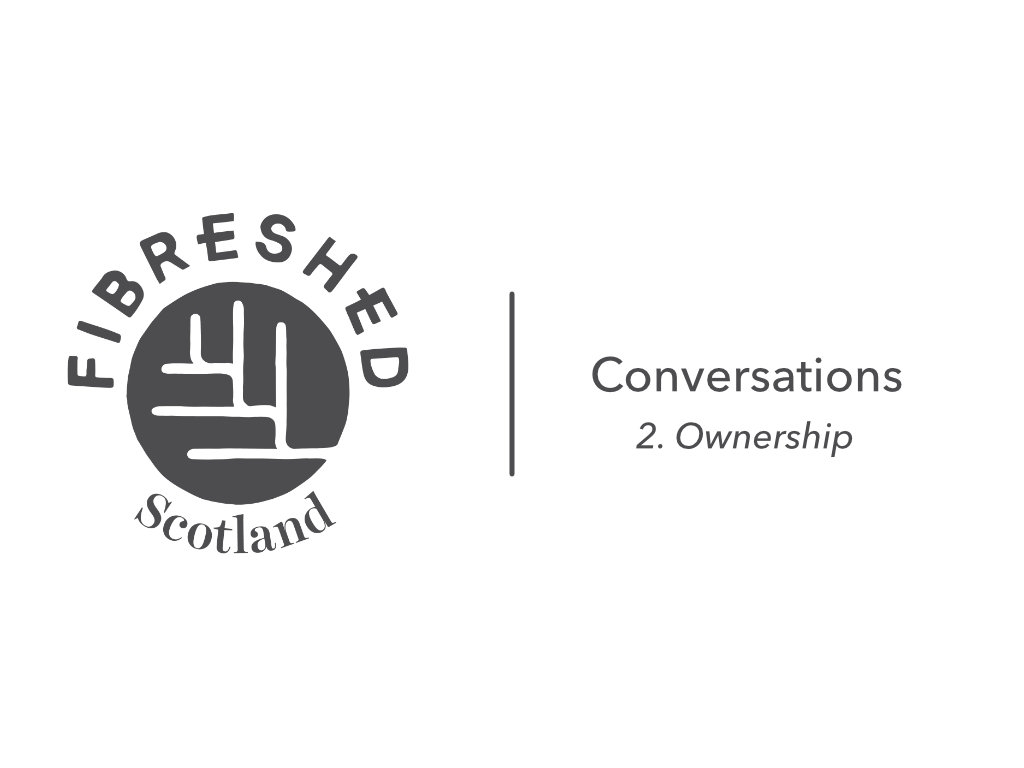Conversation 2: Ownership
We’ve continued with our Conversations this week, focussing on ‘ownership’ - meaning "feeling a sense of responsibility for" rather than "possession".

We’ve continued with our Conversations this week, focussing on ‘ownership’ - meaning feeling _a sense of responsibility for _rather than possession. Thank you to all the wonderful participants and the insights, ideals and challenges they shared.
We tackled some tricky questions designed by Peter Block to get to the heart of what makes organisations or initiatives like Fibreshed Scotland really work. The essence over the course of the six conversations, is to get beyond blaming others for what isn’t working the way we’d like, into stepping up towards being part of the change we’d like to see, based on the relationships we build with each other.
This involves ‘owning’ some uncomfortable truths like how tied in we are to the very systems that we want to change. Particular points I heard included:
- Not being able to sell what I make for a price that reflects the work that goes into it; my price points reflect ‘market value’ which is based on cheap artificial fibre imports
- My creative work being seen as a ‘paying hobby’ rather than the means to a livelihood
- Doing work whose ethos I don’t believe in to earn a living and support my fibre and textile interests
- Wearing clothes that aren’t made from natural fibres as they’re convenient
- How easy it is to do things like buy our food or clothes the mainstream way even when we feel it’s not sustainable or regenerative.
We also talked about the ‘story’ people tell about their work or about Fibreshed Scotland. Most people had a lovely story about their own businesses or initiatives. We heard provenance stories which added value to a particular product and how that product brings value to people’s lives; we heard stories which connect people with the way textiles have been valued in the past and could be again, as well as stories which connect with a particular place and the fibres and dyes which are available in the immediate local area. We heard elements of an unfolding story about environmental rights and ecocide, defined in terms of something damaging to home and the ecosystems we depend on.
Few of us have a Fibreshed Scotland ‘story’. That’s a challenge for us to take up as these Conversations unfold. Some further seeds of possibility were sown this week, however:
- The possibility of local wool processing to avoid sending big batches down to mills down South
- The possibility of seeking to influence government policy; one of us had heard of plans to reduce the number of sheep in Scotland as part of a climate change response
- The possibility to engage with those in academia who are interested in connections between clothing, sustainability and poverty.
The challenge of the ‘ownership’ conversations is thinking through who is going to pick up these possibilities and challenges. There is only us. But as we recognised at the end of the conversations this week we have many gifts to offer: passion, insight, infectious enthusiasm, and a range of alternative possibilities.
That takes us neatly to the ‘Dissent’ conversations - all the doubts and reservations that you may have about building a Fibreshed Scotland that we need to take into account. Conversations are on Wednesday at 7pm and Thursday at 1pm. You’re very warmly welcomed whether or not you’ve taken part in any of the Conversations to date.